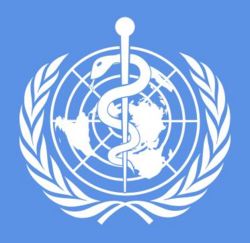
Today I wrapped up a presentation for Diplomacy and World Affairs on the World Health Organization and how it has moved to address the factors (and lack of rights) that cause ill health.
The WHO's constitution states that “"the enjoyment of the highest attainable standard of health is one of the fundamental rights of every human being." This tiny sentence should encourage developed nations to provide the best possible health care for its citizens, as health is truly a human right. Don't get me wrong: the United States is more healthy than almost every developing nation, and the WHO mostly focuses on poor countries. Yet that same statement applies regardless of where a state stands on the development spectrum. If a nation can provide better health care to its citizens, it should. It's a thought I had often during the debate on the bill.
It's interesting to see how far we have come in the realm of health care as compared to poorer nations. It's also interesting to note how far we have to go before America is truly healthy. Health and poverty are tied across the world. In the developing world, Malaria, TB and HIV are linked to a recurring cycle of poverty for a variety of reasons (they are exacerbated by poverty and lead to a lack of investors, lost income, deaths in the family, etc). In the United States it is often the poor who are most affected by disease (especially chronic ones such as heart disease) and a lack of proper health care. The majority of "the poor" in America do not live in abject poverty, but instead are part of the lower-middle class who have lost their jobs, or are underemployed, and struggle to pay for rent, food and utilities. We should take a lesson from what the United Nations is doing abroad by addressing the root problems of ill health.
Reform of the health care industry is a huge step in the right direction, as insurance and good primary care are essential for a healthy nation. This is one of the reasons I see this bill as being so important. It isn't perfect by any means but it begins to address the structural problems that prevent people from getting care in the United States. If we really want to live up to our rhetoric of promoting health for all we do need to dig a little deeper.
No comments:
Post a Comment